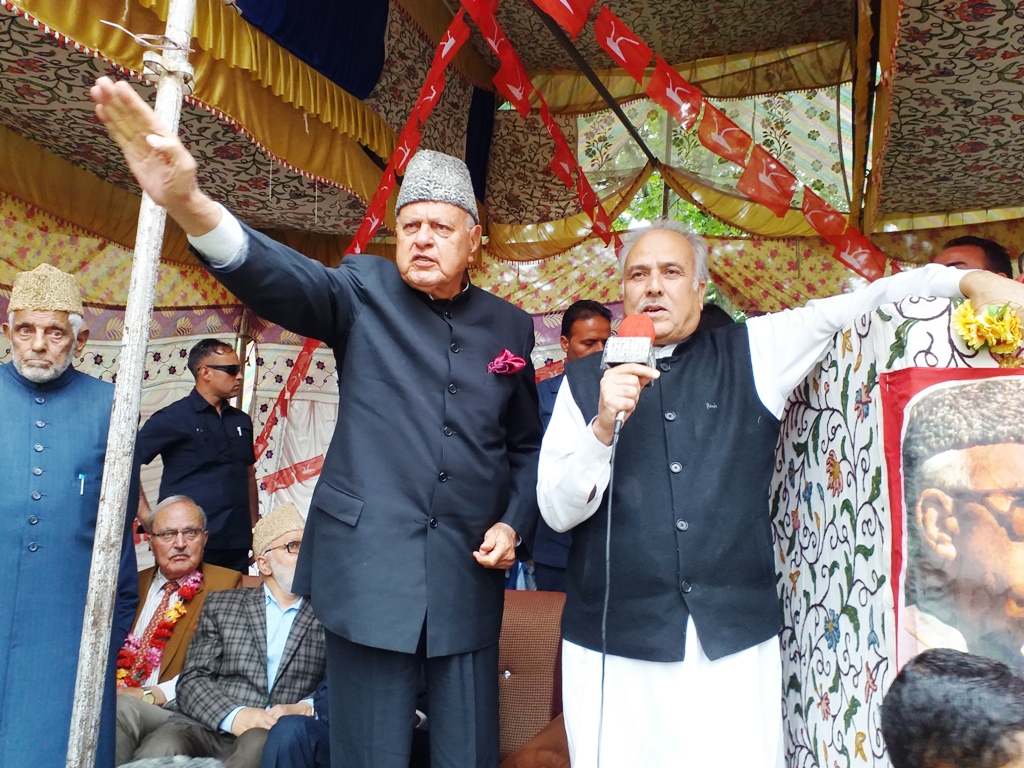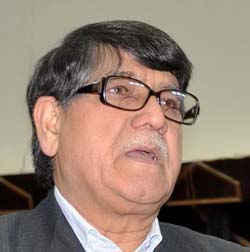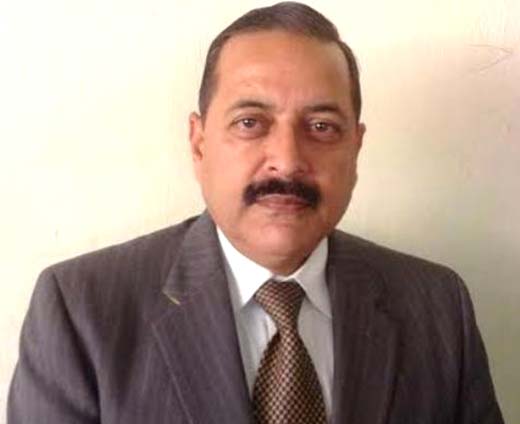In the just-concluded Lok Sabha polls that gave Narendra Modi a Himalayan mandate, Jammu and Kashmir also sent six representatives to the Lok Sabha. But the results threw up many loss-makers as well, reports Shams Irfan

The long and tiring election process that stretched more than two months concluded in Jammu and Kashmir with National Conference (NC) winning all three Kashmir seats, making a comeback after 2014 debacle, and BJP taking the remaining three in Jammu and Ladakh regions retaining its turf.
For Congress, Peoples Democratic Party (PDP) and Peoples Conference (PC), who drew blank, this election was important as it would have helped them check the waters before upcoming state assembly elections.
But given the low poll percentage and difficult ground situation for political parties to operate and mobilise support, Lok Sabah elections could hardly offer any clue, particularly in south and Central Kashmir seats.
However, in north Kashmir, where voter turnout was decent, May 23 results offered interesting takeaways for politicians as well as political pundits. With NC’s Akbar Lone winning the seat, it was vocal Langate lawmaker Engineer Rasheed who proved almost everyone wrong by securing over one lakh votes. He took number three spot with a vote share of 22.43 per cent, against Lone’s 29.29 per cent and PC candidate Raja’s 22.65. Initially dismissed as just another upsetting force by big guns like NC, PDP and even PC, Rasheed’s performance has changed the equation in north completely. But he was not alone. He was backed by bureaucrat turned politician Shah Feasal, who decided not to contest Lok Sabah polls this time.
The one lakh votes that Rasheed secured are spread over seven assembly segments of north Kashmir, mostly in areas which were considered as Sajjad Lone’s pockets of influences.
His rise beyond Langate in the north is sure to give Sajjad Lone sleepless nights, as Lone was confident of taking his party to the Parliament this time. That is why Sajjad Lone has fielded candidates on all three seats for the first time. But Rasheed’s entry ended up tilting the scales in NC’s favour. Had Rasheed not contested, a major chunk of votes he got could have gone to Lone’s party ensuring his win. This single win for Sajjad Lone would have cemented his posting in upcoming elections and put him in a better bargaining position. Between Sajjad Lone and his Chief Ministerial dream stands Er Rasheed now.
Like it or not, given the current post-poll scenario Rasheed is now a major political force in the north, almost equal to NC and PC. His vote share is better than PDP and Congress’ collectively.
While elections in the north helped Rasheed rediscovers his political worth, in Srinagar the results saw the return of NC’s old guard Dr Farooq Abdullah to the centre stage. With contest largely as one-sided, Dr Farooq had a smooth sail amid low poll percentage and boycott. His chief opponent Agha Syed Mohsin of PDP secured nearly one-third of his votes. Keeping in view poll boycott and past voting patterns in Srinagar, Sajjad Lone fielded Shia leader Imran Raza Ansari’s younger brother Irfan Raza Ansari as PC’s candidate. But despite a vigorous campaign Irfan Ansari failed to retain his deposit as he polled just 28773 votes out of total 183527 votes polled in Srinagar.
Ansari brothers banked heavily on Shia dominated belts of Budgam and downtown Srinagar for a decent show.

But that couldn’t help as PDP’s Agha Syed Mohsin divided these votes, giving Dr Farooq a winning margin of over sixty thousand votes. In last Lok Sabah polls, Srinagar was wrested from Dr Farooq by PDP’s Tariq Hameed Karra. This was followed by PDP winning key assembly seats in Srinagar including Hazratbal, Zadibal, Amira Kadal, Batamaloo and Sonwar. This left NC cornered to Habba Kadal, Khanyar and Eidgah only in 2014. But things did not go PDP’s way as cracks in the party started to come to fore immediately after Mufti Syeed’s death in early 2016. To quell the dissenting voices within the party, his daughter Mehbooba Mufti carried on with the highly unpopular political alliance with BJP. Now NC once again back in saddle and PDP pushed to number two spot, Omar Abdullah can only wish for an early election to keep the momentum going. Interestingly, PDP’s former minister Syed Altaf Bukhari threw his weight behind Dr Farooq in recent elections instead of supporting his party’s candidate. This has brought the rift in PDP out in open.
In down south, the contest for Anantnag constituency was an interesting one as Mehbooba Mufti faced her first elections after unceremonious fall of PDP government last year.
Once her stronghold, people in south Kashmir’s Kulgam, Shopian, Pulwama and Anantnag districts didn’t come out to vote. The three-phased poll process ended with just eight percent people exercising their franchise.
Despite Mehbooba’s desperate attempts to consolidate her voter base, which included dare-devil visits to the families of both slain and active militant, it was her “milk” and “toffee” remark of 2016, that people remembered her for.
This comment put her hardcore workers in a tight spot as guns continued to roar even days before Pulwama and Shopian went to polls. Whatever little votes she expected from these areas couldn’t materialise given the tension on the ground. On poll day entire south Kashmir looked like a big garrison with massive military presence around polling booths. While areas loyal to PDP stayed away, it was a field day for NC and Congress workers in the south, who banked on a low turnout.
This gave NC’s new face Hasnain Masoodi an edge over his opponents and he ended up defeating both Mehbooba, a former Chief Minister and G A Mir, Congress Kashmir face.

Pitched against big guns retired judge turned politician Masoodi, banked on non-boycott traditional vote bases in areas like Pahalgam, Noorabad, Shangus and Pampore. These were the only areas in the south where voters lined outside polling booths. In rest of the south getting voters to polling booth was a daunting challenge for workers.
In one typical case in Zangalpora, Kulgam, a PDP worker was shot five times because he sent five of his family members to cast their votes. It was one bullet each for every vote he helped his party secure. This made each vote polled in Kashmir literally precious compared to the massive participation in Ladakh, Jammu and Udhampur.
While Jammu and Udhampur got swayed by the massive Modi wave that was prevalent across India, Ladakh landed in BJP’s lap because of Congress miscalculations. As Shah Feasal put it, Ladakh is the classical case of Congress follies in this election. Backed by NC and PDP, independent candidate Sajjad Hussain lost to BJP’s Jamyang Tsering Namgyal by a margin of ten thousand votes. But that is not the entire story. Despite vowing to have a “friendly contest” Congress’ fielded Rigzin Spalbar. Also in the fray was Asgar Ali Karbalai, a former Congress veteran who contested as an independent, and secured over 29 thousand votes, most of them from Hussain’s kitty. Karbalai and Spalbar’s candidature helped BJP consolidate its vote share in Leh, while votes in Kargil region got divided among the rest. Omar Abdullah termed BJP’s win in Ladakh as an offering on the platter from Congress! This win helped BJP square its position in Jammu and Kashmir with three seats out of six.
The entire poll exercise was massive in terms of mobilisation of security personnel across length and breadth of Kashmir, to make sure that elections are incident free. In order to facilitate this mobilisation, the main highway was ordered shut for two days in a week, something that has never happened before.
This highway ban on Wednesdays and Sundays caused major inconvenience to the movement of people and goods.
Barring one poll day civilian killing by CRPF in Madnigam village of Kupwara, and grenade attacks on two polling booths in Pulwama, the elections remained largely incident free.















